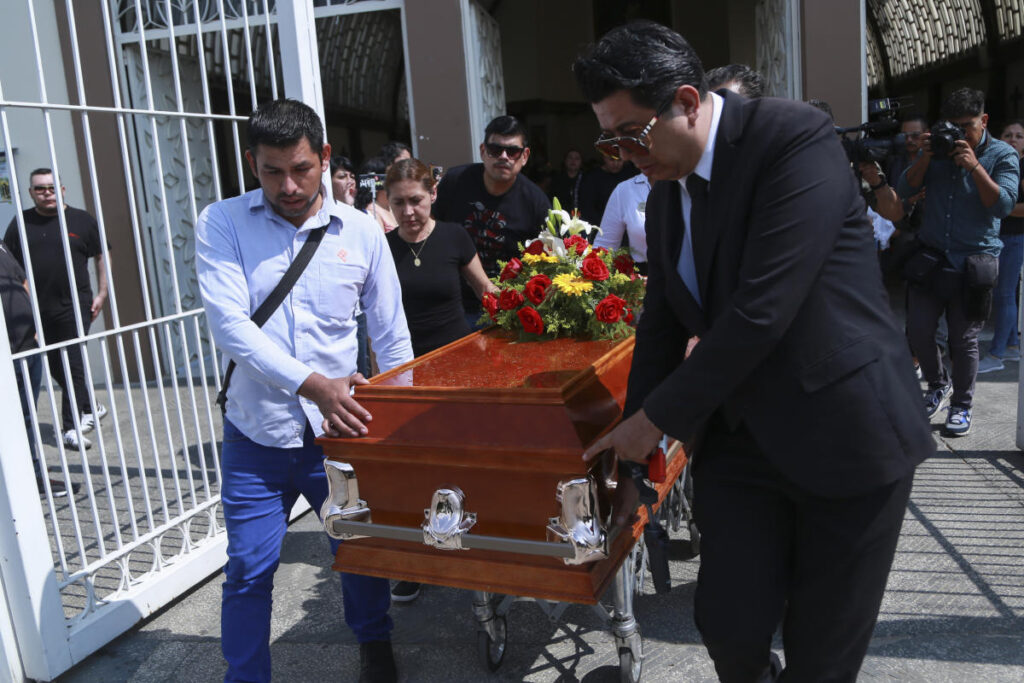The recent assassination of journalist Mauricio Solís in Mexico has brought urgent attention to the perilous conditions faced by media professionals in the country. Solís, known for his coverage of the tumultuous region of Michoacan through his Facebook news page Minuto por Minuto, was shot and killed shortly after conducting a public interview with Uruapan’s mayor, Carlos Manzo. This incident took place mere minutes after their conversation, raising concerns about the possible links between the interview and his murder. Manzo recounted the harrowing experience of hearing gunfire just a short distance away, asserting that they initially feared for their own safety until they learned Solís had been the target.
The U.N. human rights office in Mexico condemned the killing, emphasizing the need for improved protection for journalists, especially in a nation that has seen an alarming rise in violence against media workers. This tragic event marks at least the fifth assassination of a journalist in Mexico within the current year, underscoring a growing trend of attacks against those who dare to speak out or report on sensitive topics like drug cartel activity and corruption. The U.N. stated that Solís’s death serves as a grim reminder of the vital importance of upholding freedom of expression and the public’s right to information.
Solís was actively documenting the issues that plague his community, including drug trafficking and the associated violence that has long afflicted Michoacan. This region has become notorious for cartel-related extortions, particularly related to the lucrative avocado and lime industries. Business owners, especially those in agriculture and ranching, often face threats from gangs demanding extortion payments, which can lead to violent repercussions for those who fail to comply. Just moments prior to his tragic death, Solís had reported on a suspicious fire at a local market, an incident likely linked to the relentless extortion tactics employed by local crime syndicates.
The circumstances surrounding the killing have reignited discussions about the dangers faced by self-employed journalists in Mexico, who are increasingly turning to social media platforms for their reporting. With traditional media outlets facing financial and operational constraints, many journalists are now utilizing platforms like Facebook and online news sites to share information, making them vulnerable targets. Solís’s death exemplifies the risks associated with covering local crime and corruption when armed groups are willing to resort to lethal violence to silence dissent and erase unfavorable narratives.
The U.N. human rights office expressed that the troubling trend of journalist killings in Mexico symbolizes a broader crisis concerning safety and human rights, particularly for those working on the frontlines of information dissemination. Journalists are integral to keeping citizens informed and engaged, and the growing threat of violence undermines the foundational principles of democracy and accountability. Solís’s assassination serves not only as a loss for the media community but as a stark warning of the pervasive culture of impunity that enables continued violence against those striving to report the truth.
As Mexico grapples with rampant drug-related violence and corruption, the call for enhanced protections for journalists has never been more pressing. The homicide of Mauricio Solís underscores the need for systemic changes to ensure the safety of reporters in the country. Advocacy for stronger legal frameworks, increased support mechanisms for journalists, and a collective effort to combat the influences of organized crime are essential to fostering a climate where freedom of expression can thrive and where those who seek to inform the public are not silenced through violence.

